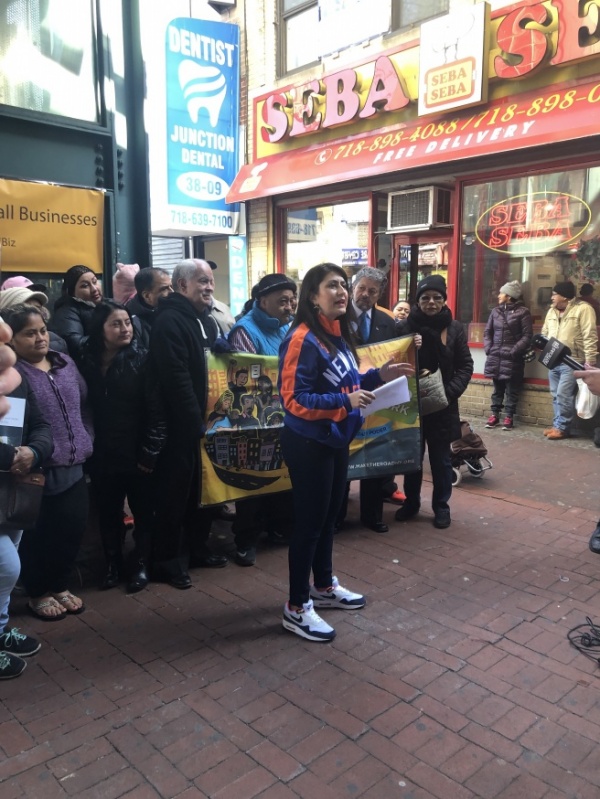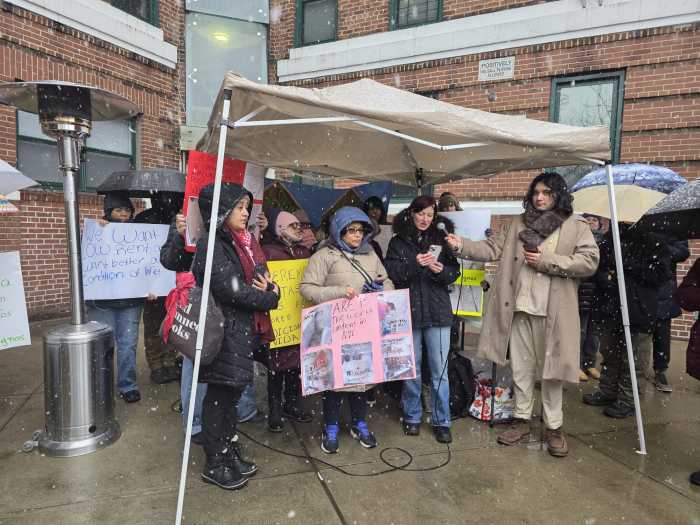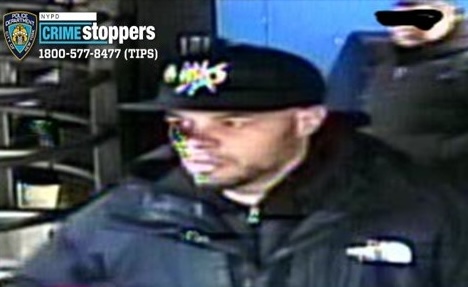
State Sen. Jessica Ramos at rally in support of street vendors in April (Office of Senator Ramos)
Nov. 6, 2019 By Allie Griffin
State Senator Jessica Ramos wants to lift the city’s cap on the number of street vendors allowed throughout the five boroughs.
Ramos introduced a bill on Oct. 28 that would prohibit cities throughout the state, including New York City, from limiting the number of street vendor permits.
The bill applies to both food vendors and those who sell general merchandise such as pottery, jewelry and crafts.
There are just 3,100 permits available for year-round food vending in New York City, with an additional 2,000 available on a seasonal basis. Despite the city’s population growth, this number has largely gone unchanged since the 1980s. Additionally, there are just 853 licenses for the sale of general merchandise.
The city has historically been reluctant to raise the number of permits. Opponents–particularly landlords–argue that street vendors hurt brick-and-mortar stores and cause sidewalk congestion.
The bill is of particular importance for Ramos, since her district includes Jackson Heights, an area that has gained fame for its food vendors, most of whom are immigrants.
“Street vendors are small business owners, often people of color and immigrants, who work in public spaces to provide food and other goods to the greater community,” Ramos’ bill reads. “Over the past 30 years, cities throughout the state have made it increasingly difficult for vendors to make a living, through the denial of vendor permits and the criminalization of the industry.”
The bill would also prohibit local governments from banning street vendors from city parks or specific locations except if is related to the health, safety and welfare of the public. The bill, however, would allow municipalities to ban stationary street vendors from exclusively residential areas.
The bill would also erase street vendors’ records of past citations and misdemeanors related to sidewalk vending.
The bill will not be taken up by the state senate until it returns for the 2020 session in January.
Most current permit holders have held them for decades, since the permits can renewed indefinitely. Therefore only about 50 spots open a year and the waitlist for a permit has more than 1,500 applicants on it, according to a 2017 study by Macaulay Honors College at Baruch.
The Street Vendor Project, which is part of the Urban Justice Center, estimates that there are about 10,000 to 12,000 street vendors across the five boroughs, including those that have permits. As a result, a black market has grown where permits that cost $200 from the city are illegally resold for as much as $25,000.
Similar legislation to lift the cap has been introduced on a city level but has failed to gain traction.
A bill was introduced last year by Council Member Margaret Chin that aimed to increase the total number of permits to 9,100 over a period of 10 years. The bill never made it to the full council for a vote.
In 2016, former Council Speaker Melissa Mark-Viverito proposed a bill dubbed the Street Vending Modernization Act, which would have doubled the number of food vendor permits. That bill also never passed.


































